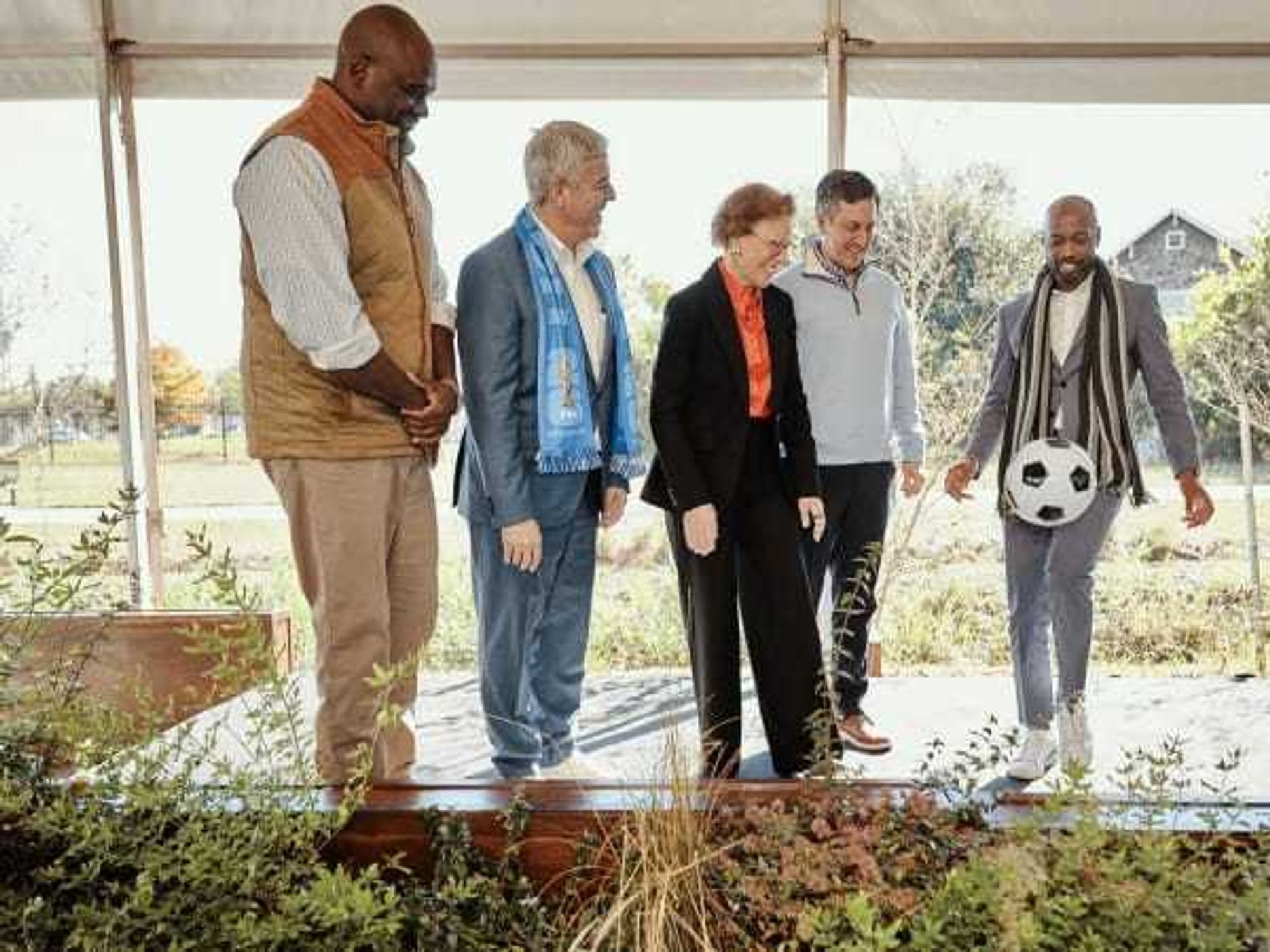Setting aside the small stuff
Rice University panel explores the future of immigration policy beyond partisanpolitics
- City leaders tackled the civic and economic issues behind creating immigrationlegislationPhoto by Tyler Rudick
- Kinder Institute co-director Stephen Klineberg serving as panel moderatorPhoto by Tyler Rudick
As Houston moves into its 175th year, Rice University's Kinder Institute for Urban Research teamed up with the American Jewish Committee to look towards the city's future, hosting a summit this month on one of the state’s most politically charged legislative issues — immigration reform.
With Kinder co-director Stephen Klineberg serving as moderator, a panel of city leaders tackled the civic and economic issues that make the development of fair immigration law throughout the region more pressing than ever.
"We have so much to learn," said summit co-chair Mike Nichols in a brief introduction. "Let's start today by committing to separating fact from fear." While he pointed to Arizona and Alabama immigration laws as "mean-spirited," Nichols felt Texas had the creativity and willpower to develop positive reform that could bring undocumented citizens out of the shadows.
"Just because short-sighted partisanship has crippled the US Congress' ability to solve any major problems," he said, "does not mean that Texas can't find its own solutions."
Taking the podium, sociologist Klineberg shared some statistics. About 1.6 million undocumented immigrants live and work in Texas, with between 400,000 and 500,000 in the Houston area alone.
"We want to ask about the costs of our failure to repair a broken immigration system," Klineberg said. He projected hundreds of millions in administrative savings and potential tax revenues if a proper tax code and system of legitimate documentation could be implemented.
"Just because short-sighted partisanship has crippled the US Congress' ability to solve any major problems," summit co-chair Mike Nichols said, "does not mean that Texas can't find its own solutions."
Speaking on the economics of immigration reform, Larry Kellner, who heads the Greater Houston Partnership, noted that while immigration reform has been cast as a politically charged issue, the Houston business community is more than willing to support policies that could legitimize its undocumented workforce. A strong tax base, he said, simply leads to a stronger city.
Vinson & Elkins attorney Beto Cardenas spoke on security issues, promoting documentation policies as a means to protect and insure all drivers throughout the state, regardless of immigration status. Clear legal documentation might also encourage victims of crime to work with law enforcement without fear of deportation.
These same deportation fears plague undocumented immigrants in the realm of public heath, explained David S. Lopez, president of the Harris Country Hospital District. While county hospitals will not turn away patients based on one's legal status, he felt the murky laws on immigration discouraged the undocumented from seeking even minor preventative care.
While no immigrants themselves, undocumented or naturalized, appeared on the panel, both deacon Joe Rubio of Catholic Charities and Juliet K. Stipeche of the Houston Independent School District board of education offered perspectives on immigration reform through the lens of basic human rights, broadening the issue beyond cut-and-dry political interpretations.
“We are an immigrant nation," said Rubio, "yet each wave of immigrants that comes seems to forget that a little bit more.”
Aside from a brief moment of finger-pointing at the Obama administration from Cardenas, who was formerly general counsel to U.S. Senator Kay Bailey Hutchison, the summit stayed on target in its attempt to envision approaches to immigration reform free of partisan politics.
“Creative ideas and collaborative efforts have always been the raw materials from which the best America has been built,” said Marcia Nichols, the event’s other co-chair, as she closed the panel discussion. “We have the ability to make the changes.”


